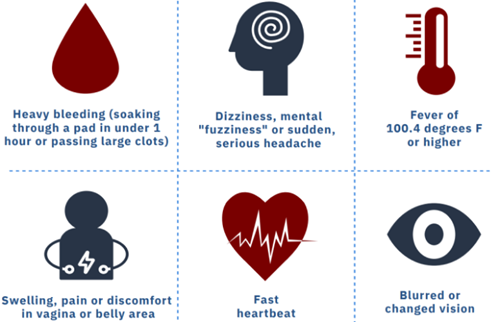Skip subpage navigation
Postpartum hemorrhage is a serious, but rare, condition in which a woman experiences excessive bleeding following the delivery of a baby. It can occur at any point up to 12 weeks postpartum. For women and their families, understanding the risks and signs of postpartum hemorrhage is the first step in getting prompt treatment.
Lower Your Risk
PPH is rare, but there are some things that can make you more likely to experience it than other women:
- A history of PPH
- Some medical conditions increase the risk of PPH
- Asian and Hispanic women are more likely than others
Consult your health care provider to determine if you have any risks that may increase your chance of PPH.
Prevention of PPH is not always possible, but clinical evidence shows that prompt assessment and treatment improves outcomes. The Military Health System is standardizing a program to identify mothers at risk and deliver prompt treatment. The Postpartum Hemorrhage Bundle, based on the Alliance for Innovation on Maternal Health, uses best-practices from national initiatives to decrease the rising complication rates for mothers during delivery and postpartum periods.
Signs & Symptoms

If you experience any of the symptoms of postpartum hemorrhage, contact your health care provider immediately.
You also may be interested in...
You are leaving Health.mil
The appearance of hyperlinks does not constitute endorsement by the Department of Defense of non-U.S. Government sites or the information, products, or services contained therein. Although the Defense Health Agency may or may not use these sites as additional distribution channels for Department of Defense information, it does not exercise editorial control over all of the information that you may find at these locations. Such links are provided consistent with the stated purpose of this website.
You are leaving Health.mil
View the external links disclaimer.
Last Updated: August 08, 2023